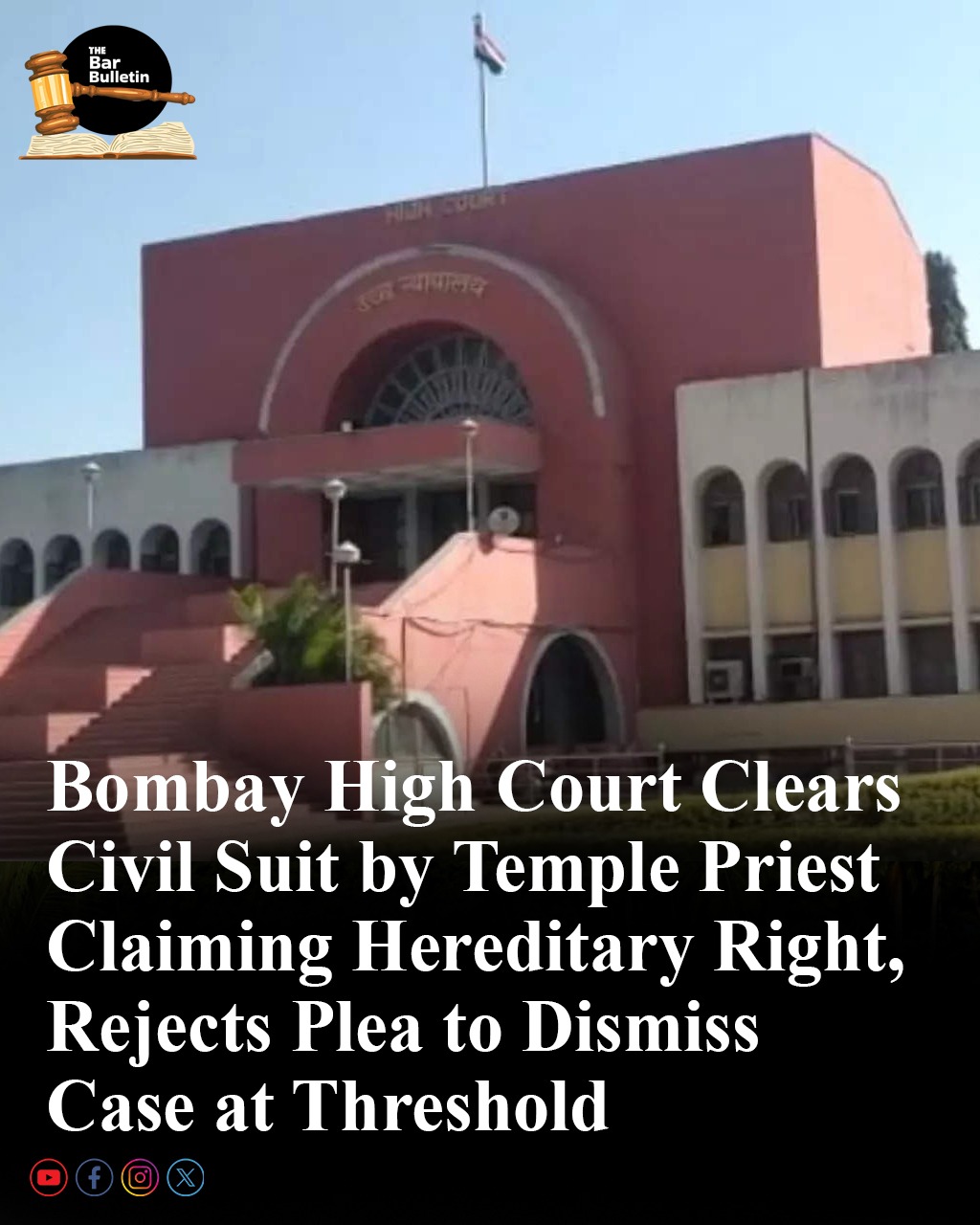The Bombay High Court (Aurangabad Bench) dismissed a civil revision application filed by Shri Balaji Mandir Sansthan and others. The petition challenged the trial court’s refusal to reject a plaint filed by a hereditary temple priest under Order VII Rule 11 of the Code of Civil Procedure (CPC). The dispute centered around the priest’s claim to hereditary archakship rights at the historic Balaji temple in Parola, which the trust had allegedly attempted to terminate in 2024.
The respondent asserted that his family had been performing priestly duties in the temple since 1900 and that his removal from the post in 2024 was arbitrary and procedurally flawed. He sought declaratory and injunctive reliefs from the civil court. The trust, in response, moved an application seeking rejection of the plaint, contending that the claims were legally untenable and barred by the Constitution, the Maharashtra Public Trusts Act, the Contract Act, and the Specific Relief Act, and further argued that such hereditary claims ran contrary to public policy.
Justice Shailesh P. Brahme, however, rejected these contentions and upheld the trial court’s decision. He observed that the jurisdiction of civil courts under Section 9 of the CPC remains intact unless it is expressly or impliedly excluded, which was not established by the applicants. He further noted that the priest’s claim of a hereditary right to perform religious duties was personal in nature, involving no broader public interest that would warrant exclusion under Sections 50 or 51 of the Maharashtra Public Trusts Act.
The High Court also found that the case law cited by the applicants, including Sheshammal v. State of Tamil Nadu (1972) 2 SCC 11, was inapplicable at the threshold stage of the proceedings and more appropriately examined during trial. On the other hand, reliance on Vinayaka Dev Idagunji v. Shivram (2005) SAR (Civil) 673, where the Supreme Court upheld civil remedies for hereditary archaks, was deemed relevant by the trial court.
Concluding that the plaint disclosed a valid cause of action, the High Court held that the application for rejection was premature and unsustainable.
Appearances:
Applicants: Shri Bharat R. Waramaa, Advocate for the Applicants.
Respondent: Shri Aditya R. Deshmukh, Advocate h/f Shri Ravindra M. Deshmukh, Advocate for the Respondent No. 1.
Shri D. B. Bhange, A.G.P. for the Respondent No. 3.

